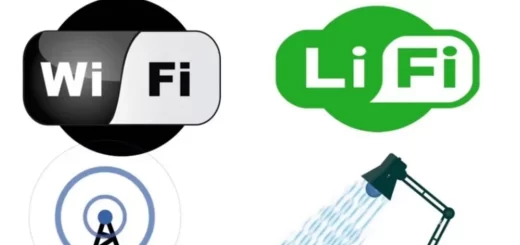Mobile malware risks & Tips to keep your smartphone secure
Mobile malware is a frontier ripe for cyber criminal activity , A full 57 percent of smartphone users are doing their online banking on their phones & they are used them for storing and transmitting sensitive data , As more and more people use their phones to go online , more cyber-criminals will hear the call .
Tips to keep your smartphone secure
Hardware owners should utilize two-factor authentication when they can , which provides an additional layer of security against unauthorized access , They should configure the smartphone settings to ensure that the endpoint automatically locks when not in use for a set period of time .
You should be sure to update the software on your smartphone & the applications whenever a new version is released , These patches correct known security problems and can prevent hackers from exploiting weaknesses in the operating system .
You should disable the automatic Wi-Fi connection feature , Although this capability can provide added convenience and save on the data plan , It can open an unsecured access point for cyber-thieves’ data leakage activities too .
You should protect your mobile as losing your smartphone can be pretty stressful , Each day , 200,000 devices are lost , stolen or damaged , You may be surprised by the high out-of-contract price of replacing a lost smartphone with an equivalent make and model .
An increased volume of people turning to their phones as the primary means for going online , So , Total mobile protection should be considered , If the mobile is lost , stolen , damaged or it has a mechanical or electrical defect after the manufacturer’s warranty expires .
The part of total mobile protection is Verizon Support & Protection , an app powered by McAfee® to help protect your device against the viruses , the malware and the other digital threats , The other useful features include lock , locate , alarm and the ability to wipe your device if it is lost .
You can use a pin , password or pattern to lock your phone , Setting them is easy , For most Android™ devices , go to your Location & Security Settings for the instructions , The iOS users can find these functions in the general options of their settings .
You should download apps only from the trusted stores , If you are browsing for a new game or something more productive , You have to use places such as Google Play™ , You should make sure you check ratings and reviews if they are available , and read the app’s privacy policy to see exactly what phone features it will have access to if you download .
You have to back up your data , It is more about protecting & restoring your information in case of disaster strike , With Backup Assistant Plus and Verizon Cloud , you can save your contacts , music , pictures , videos and the documents to the cloud .
You should keep your operating system and apps updated , There are periodic updates to both of these which not add new features only but offer tightened security too .
You have to log out of the sites after you make the payment , If you shop from your smartphone , log out of those sites once your transactions are complete , The other tips include not storing your usernames and passwords on your phone and avoiding the transactions while you are on public Wi-Fi .
You have to turn off Wi-Fi and Bluetooth® when not in use , You think of them as ways to connect to something but the thieves can use them to connect to your device and access the files , The mobile may contain & transmit a larger volume of and more sensitive info than your computers but it’s not always as protected .
You should avoid giving out personal information , The text message which looks to be from your bank may not be , If you get the requests via email or text for the account information from any business , contact the business directly to confirm the request ,The same advice goes for tapping the links in unsolicited emails or texts .
Mobile apps require that you allow them to access data stored in your phone or on the cloud , You can receive digital boarding passes via text message or verification codes for logging into the sites , Social media apps publish photos and personal data , fitness and health apps track steps , heart-rate and food intake .
The cyber-criminal can know about their targets by breaching their cell phone , They can make a surveillance software to read text messages and emails , record the sounds , collect the passwords and track the calls and whereabouts of the users .
There are a number of factors contribute to weak mobile phone security , The phones are much easier to be misplaced , lost , and stolen , Mobile phones go with you everywhere , which means there’s more potential for leaving them behind , Once a criminal has physical control over your phone , it’s not too difficult to gain control of its data .
The downside is that the users are restricted from going outside the iTunes ecosystem , This is a dangerous measure as it negates all security , not only for apps , but also for operating systems .
Updating phone software requires ample memory and battery power , and the users are running low on both , Every time a software update is delayed on a mobile phone , The cyber-criminal has an opportunity to exploit security vulnerabilities in the operating system .
Many users don’t practice safe surfing to check their email , Facebook , Twitter and other social networking sites , They can be attacked by phishing in the form of text messaging , It has become a popular attack vector , particularly for the criminals looking to cash in on the popularity of mobile banking .
Forms of Cyber Bullying & How to protect yourself from Cyber Bullying
Spam email and phishing scam risks & Can it be dangerous to open spam emails ?




